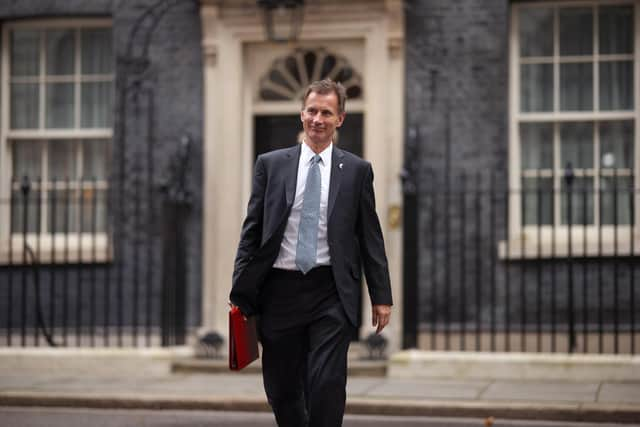Smart Money: The three big trends this year which have dented people’s plans for retirement - Sam Richardson
Answer: Whether you want to spend more time with family, travel, or simply never see the office again, deciding to retire shouldn’t be all about the money. But, unfortunately, it can’t be ignored.
The latest employment figures from the Office for National Statistics, from April to June this year, showed 173,000 more people aged 65 or over in the workforce. Many are likely to be delaying retirement, or having to return to work after thinking they were done with it.
Advertisement
Hide AdAdvertisement
Hide AdThree trends this year have dented people’s plans for retirement. The first is high inflation – the price of seemingly everything rising – which means retirees, typically on relatively fixed incomes (such as pensions) may struggle to make ends meet.


The second is volatility in the stock markets, which means that your pensions and investments may have fallen in value. The third and final obstacle is the uncertainty surrounding taxes and whether the state pension will rise by inflation next year (the triple lock), making planning ahead more difficult.
Start by looking at your workplace and private pensions. Payments from final salary (defined benefit) pensions won’t be affected by market volatility – even if the pension scheme goes bust, the Pension Protection Fund will pay 90 per cent of your pension (or 100 per cent if you’re already retired). Final salary pension payments may even rise with inflation, though you should check your terms and conditions as some impose caps on how much they rise by.
If you’ve got defined contribution pensions – where the size of the pot and hence your payments depend on investment performance – things get more complicated. As you approach retirement these pensions are typically moved into less volatile assets, so they don’t fall so fast in value. If the value of your pension has fallen you could delay accessing the pension by a few months or years to give it time to recover, but this isn’t guaranteed. It could make sense to use up cash savings instead, as these are more vulnerable to inflation.
Now let’s move onto the big question – how much will you need? Each year our Which? cost of retirement survey asks retired and semi-retired people what they’re spending to come up with some costs for essential, comfortable and luxury retirements.For an essential retirement – mortgage or rent payments, bills, meals at home, clothes and health products – a couple would need an income of £19,000 a year and a single person £12,000. A comfortable retirement includes the above essentials, plus regular short haul holidays, recreation and leisure, tobacco, alcohol and charity giving. A couple would require £28,000 a year and a single person £19,000.Feeling flush? A luxury retirement includes all the above perks plus extended long haul holidays, health club memberships, home improvements, private healthcare, and a new car every five years. But it costs a pretty penny: £45,000 a year for couples and £31,000 for a single person, to be exact.These targets were drawn up in spring this year, so it’s best to see them as a minimum and save a little extra, in case taxes go up or the state pension doesn’t rise by inflation.
Our free pension calculator (which.co.uk/pensioncalculator) can help you work out how much you're going to get per year, using your existing savings and contributions. I’d also recommend booking an appointment with PensionWise, the government service that provides free pension guidance sessions for over-55s. You can book an appointment online or call 0800 138 3944.
Sam Richardson is deputy editor of Which? Money
Comments
Want to join the conversation? Please or to comment on this article.